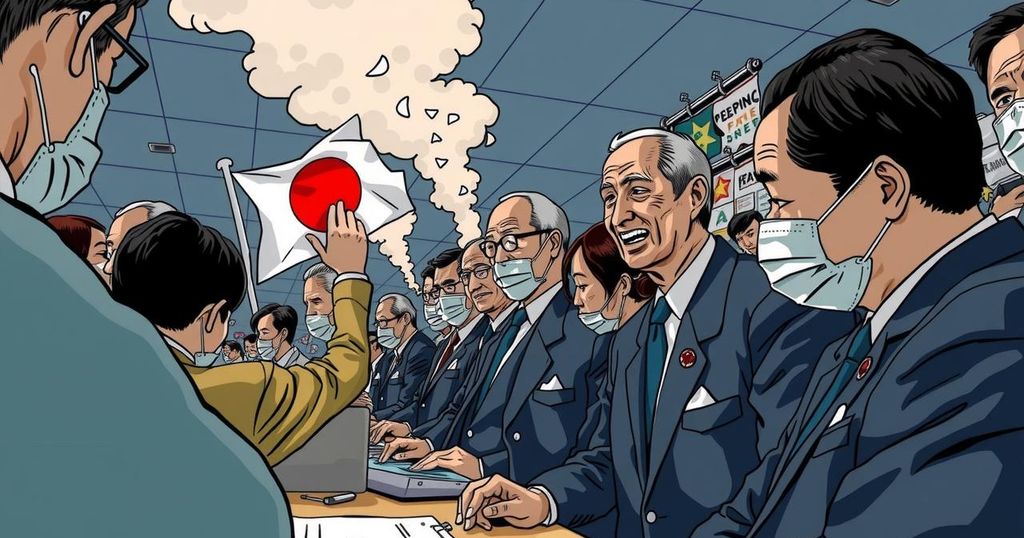Japan’s Elections Signal Growing Discontent Amid Political Change

In recent elections, Japan’s ruling Liberal Democratic Party suffered a significant blow, losing its majority amid growing public dissatisfaction. Although centrist parties still hold power, far-left and far-right factions gained seats, reflecting a broader frustration with stagnation and declining living standards over the past thirty years, especially among the youth.
In recent snap parliamentary elections in Japan, the longstanding ruling party, the Liberal Democratic Party (L.D.P.), faced a significant setback, signaling growing discontent among the electorate. Historically noted for its political stability, Japan has largely evaded the populist movements that have emerged in other parts of the world; however, this latest election reveals troubling undercurrents in public sentiment. Despite the L.D.P. remaining at the helm, the party’s loss of a parliamentary majority suggests that Japanese voters are increasingly frustrated with the status quo. Although the Constitutional Democrats, a centrist opposition group, secured a greater number of seats, the elections marked a noteworthy shift as both far-left and far-right parties gained ground. Prime Minister Shigeru Ishiba attributed the L.D.P.’s poor performance to ongoing political finance scandals, yet experts assert that the dissatisfaction runs far deeper, rooted in three decades of economic stagnation and declining living standards, particularly affecting younger generations. Kunihiko Miyake, a former diplomat and current adviser at the Canon Institute for Global Studies in Tokyo, articulated this sentiment, stating that “the last 30 years of stagnation and the deterioration of the living standards, especially for young people — the frustration is there.” As Japan’s political landscape grows more polarized and uncertain, the potential for increased volatility in what is considered one of Asia’s most stable democracies looms on the horizon. Additionally, this unexpected electoral outcome raises questions about the future direction of Japanese politics and the ability of traditional parties to adapt and respond to their constituents’ evolving needs and expectations.
Japan has historically been viewed as a bastion of political stability in Asia, thanks in large part to the dominance of the Liberal Democratic Party (L.D.P.) in postwar politics. However, recent electoral outcomes suggest a shifting landscape marked by voter dissatisfaction and a demand for change. Over the past few years, Japan has experienced a growing sense of unease among its populace, particularly among younger voters who have faced stagnant economic conditions and diminishing opportunities. This backdrop of frustration sets the stage for the recent snap elections, where the L.D.P.’s grip on power was challenged.
The recent snap elections in Japan indicate a profound shift in the political landscape, revealing deep-seated grievances among voters, especially the younger demographic. The loss of the L.D.P.’s parliamentary majority signifies a potential turning point for Japan’s stable democratic system. As the electorate’s demands for change grow louder, it remains to be seen how political parties will respond to these challenges and whether Japan will face further polarization in its governance.
Original Source: www.nytimes.com






